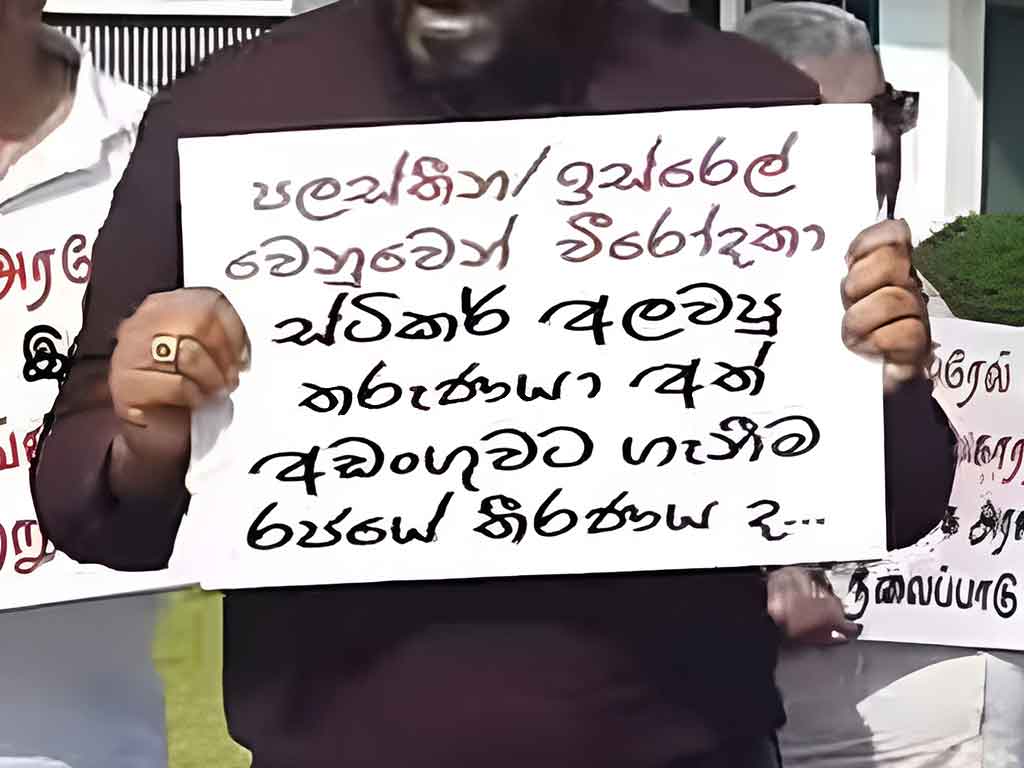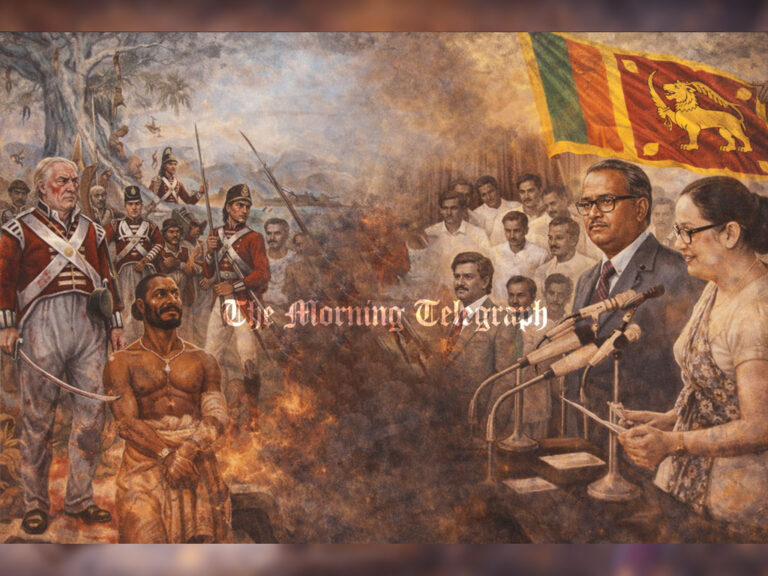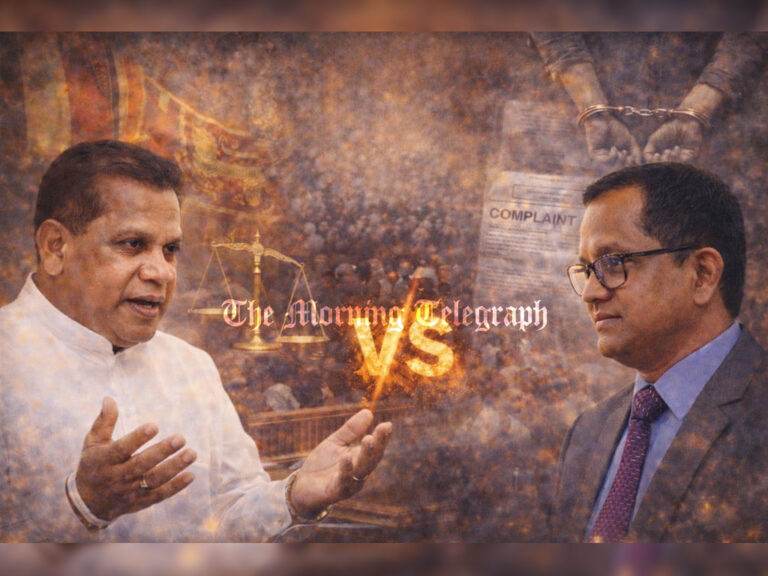
A 22-year-old youth named Mohammed Rushdie, who was arrested under the Prevention of Terrorism Act (PTA) for pasting a sticker condemning Israeli military actions in Gaza, has been released on bail just 16 days after his arrest—despite being issued a 90-day detention order.
Rushdie, a resident of Nittambuwa and employed as a salesman at a well-known shopping mall in Colombo, was arrested by the Terrorist Investigation Division (TID) on March 22. CCTV footage from the Company Street area showed him pasting the sticker, which led to his arrest.
The police claimed he held extremist views and justified his detention under the PTA, stating that information obtained during the investigation suggested he was not merely engaged in a symbolic act, but was potentially sensitive to involvement in terrorism. On that basis, the President issued the three-month detention order.
However, this move sparked intense criticism. Journalist Shalika Wimalasena publicly questioned the authorities on Facebook, asking: “How did the youth who pasted the sticker, and was sentenced to 90 days in detention, get out in just 16 days?”
The case has ignited a broader debate over the use—and possible misuse—of the PTA. Critics argue that applying such a powerful legal instrument against a youth over a sticker raises serious questions about free speech, judicial consistency, and the arbitrary use of state power.
The government, which has historically voiced support for the Palestinian cause, now finds itself in an awkward position. Arresting a young man for expressing dissent against Israel not only clashes with its professed stance but risks alienating public sentiment at home and drawing unnecessary diplomatic scrutiny abroad.
As the details of the case remain vague—especially with no formal charges beyond the sticker-pasting incident—many are beginning to ask whether this was a case of overreach, or something else entirely.
If no substantive evidence has been presented, was the PTA used as a tool for suppression? And if so, why was the detention cut short?
This has led some to question whether the government is, in fact, playing tricks on itself—undermining its own image, and weakening trust in due process.
In a broader context, this incident speaks to long-standing concerns about the PTA itself, a law enacted in 1979 as a temporary measure for three months, yet still in force more than four decades later. It has often been criticized for being used to suppress dissent rather than address real security threats.
The youth’s release has been seen by some as a quiet backpedaling, a move possibly driven by the backlash or a legal system that—despite the PTA—still offered him a chance at justice.
Regardless of the motivations or behind-the-scenes maneuvering, this sticker episode has become symbolic of a deeper struggle between state power and civil liberties.
As one commentator put it: “Think carefully before taking a step that cannot be taken back.”
It’s a reminder for the government—not just about this case, but about the broader expectations of justice, fairness, and accountability in a democratic society.




